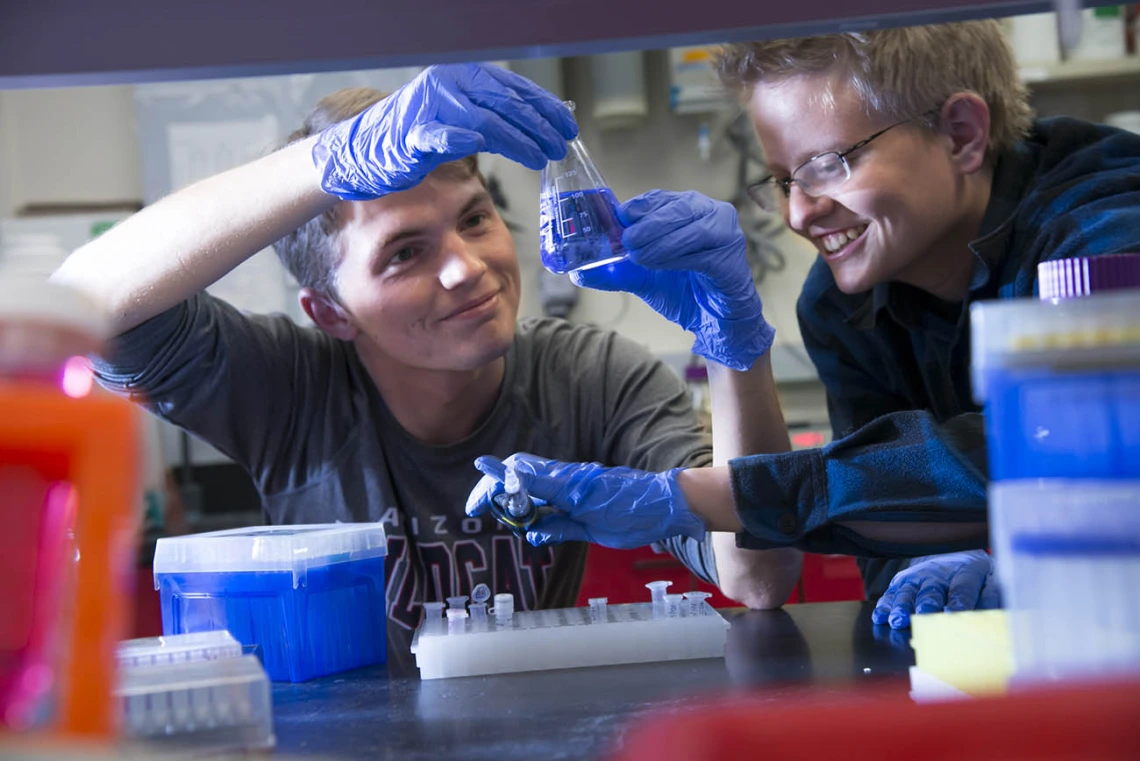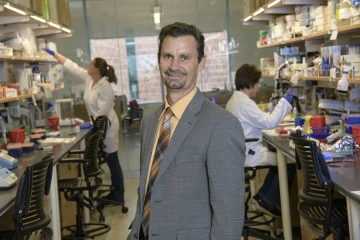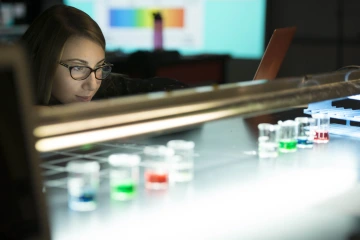New UArizona Health Sciences Undergraduate Degree to Prepare Students for Health Care Careers
A new Bachelor of Science in Medicine expands opportunities for students to pursue jobs in health care, where demand for trained professionals is rising.

Students in the Bachelor of Science in Medicine program will gain human medical science knowledge and clinical reasoning skills in four areas of emphasis: medical technology; basic medical sciences; medicine and society; and integrative and practice-focused medicine.
Health care occupations are among the fastest-growing segments of the job market, according to the U.S. Bureau of Labor Statistics. At the University of Arizona Health Sciences, students soon will be able to take advantage of expanding employment opportunities and meet the increasing demand for trained health care professionals through a new Bachelor of Science in Medicine degree program offered through the College of Medicine – Tucson.

Todd Vanderah, PhD, says the new degree with give undergraduate students the opportunity to learn about and explore a multitude of careers in the health care field.
As an increasingly aging population places greater demands on health care systems and services, the need for well-trained health care professionals is rapidly rising, with projections of job growth exceeding 30% over the next 10 to 20 years. A bachelor’s degree in medicine is designed to prepare students to enter in-demand careers in health care support positions and pursue other health-related careers, such as medical administration, biomedical engineering or medical technology. Graduates also will be ready to continue their education in advanced degree programs such as medicine, nursing, physical and occupational therapy, and pharmacy, for example.
Students in the four-year undergraduate program will gain human medical science knowledge and clinical reasoning skills in four areas of emphasis: medical technology; basic medical sciences; medicine and society; and integrative and practice-focused medicine.

University of Arizona Health Sciences students will be able to take advantage of expanding employment opportunities and meet the increasing demand for trained health care professionals through a new Bachelor of Science in Medicine degree program.
“This new degree will provide students an education not only from practicing physicians about medicine, but also from people who work in the medical field doing other things besides practicing medicine,” said Todd Vanderah, PhD, head of the Department of Pharmacology in the College of Medicine – Tucson. “One of the biggest benefits this degree has to offer is that it will allow students to have a better idea of what they may want to do in the medical field.”
Traditional science coursework – advanced anatomical, biochemical, neurological and physiological sciences, disease pathology, mechanisms of treatment and integrative therapies – will be combined with applied topics, such as what it means to be a health care provider, clinical case analysis, health care delivery to improve quality care, and hands-on experience through simulation and clinical experiences.
In one of the new courses being developed, students will examine 10 different clinical cases through the lens of 10 different health care professionals, such as a doctor, nurse, pharmacist, social worker or occupational therapist. This and other courses are designed to expose students to a wide range of health care occupations.
“Each session will have a specialist from those different fields to talk and lead that group, and the students will approach each case from a different discipline,” Dr. Vanderah said. “This degree program will give students an idea of what the practice of medicine is while also offering many other avenues in the health care field.”
Additionally, the Bachelor of Science in Medicine program offers electives for in-depth study in areas including biomedical engineering, bioinformatics, emergency medicine, aging in medicine, medical ethics, integrative medicine, history of medicine, and climate change as a factor in medical care.
The Bachelor of Science in Medicine degree will be available as a major beginning in fall 2021.
Contact
Stacy Pigott
520-539-4152
spigott@arizona.edu

